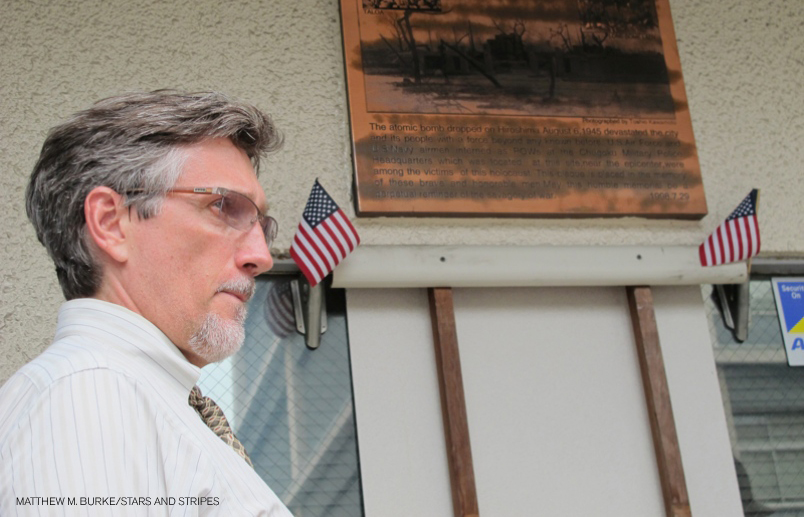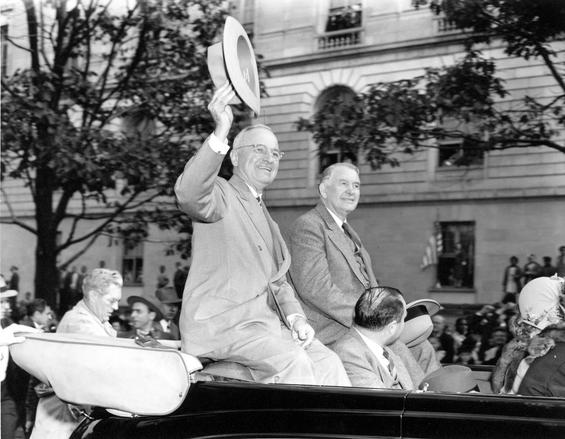A Look at Truman’s Influence on the Conclusion of World War II | January 15, 2016
World War II has become a core aspect of both United States and World History. It is a subject that returns to our minds and hearts annually as lessons from the Holocaust, knowledge of the atomic bomb, and world relations post-war circle back into our news-stream and moral consciousness.
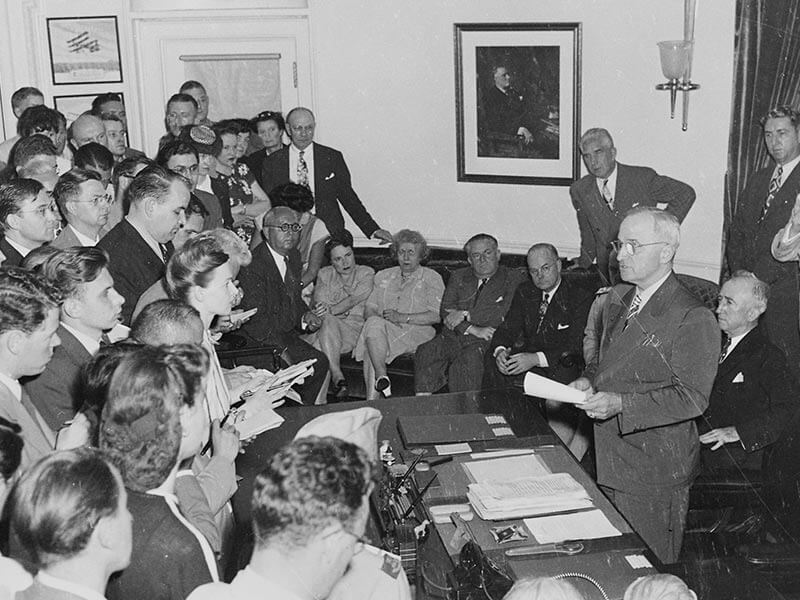
PASSAGES | January 11, 2016
GEORGE M. ELSEY
Former senior advisor to President Truman dies at 97
We were saddened to learn that one of two surviving members of President Truman’s inner circle passed at the turning of the year. Military adviser to Presidents Roosevelt and Truman, George Elsey last visited the Truman Library in 2007. We asked: “If Harry Truman walked through his Library today, what do you think he’d be most proud of?”
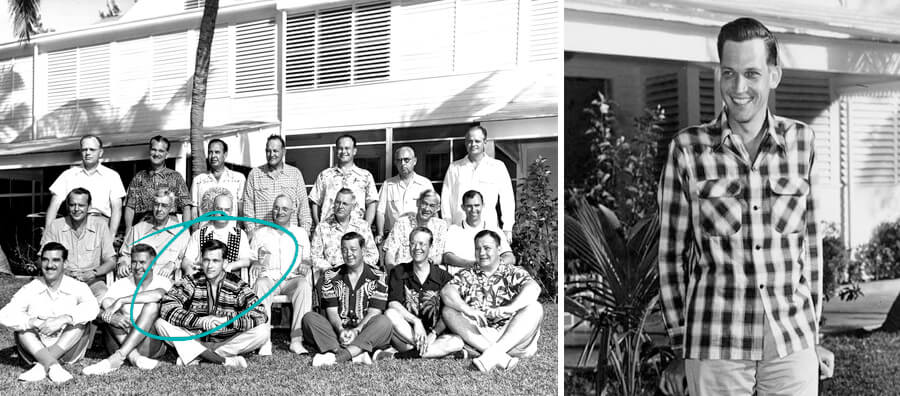
MUSEUM EXHIBITIONS | January 8, 2016
12 Amazing WWII Artifacts in the Truman Collection
Rarely Viewed documents, photos and objects headed back to the Truman vault
Till We Meet Again, the Truman Library’s exhibition commemorating the 70th anniversary of the end of World War II, closed this week, but we won’t soon forget the stories behind these 12 rarely-exhibited items from the Truman collection.
Hanukkah at The White House | December 7, 2015
From the Archives
Hanukkah at The White House
Among the gifts from heads of state that are in the holdings of the Harry S. Truman Presidential Library and Museum is a menorah presented to President Truman by Israel’s first Prime Minister, David Ben-Gurion. The menorah dates back to at least 1767, when it was donated to a synagogue in Buergel, Germany.
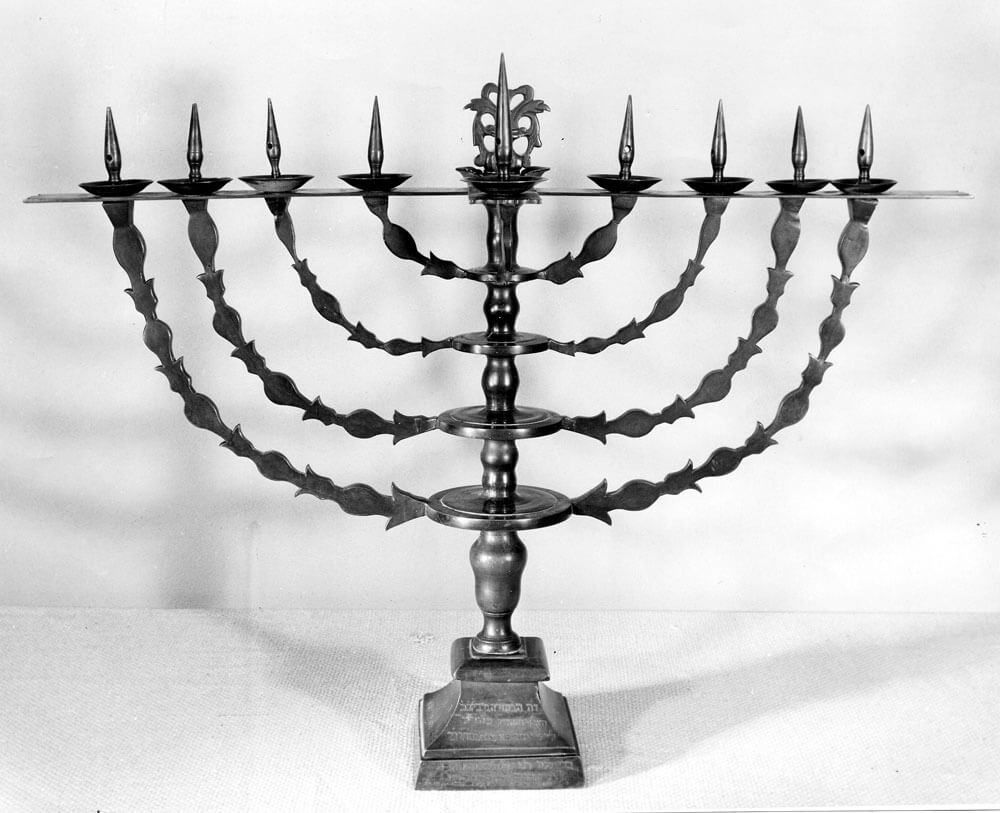
Giving Thanks in 1945 | November 25, 2015
A Word from Harry
Presidential Proclamation 2673 – Thanksgiving Day, 1945
By the President of the United States of America
A Proclamation
In this year of our victory, absolute and final, over German fascism and Japanese militarism; in this time of peace so long awaited, which we are determined with all the United Nations to make permanent; on this day of our abundance, strength, and achievement; let us give thanks to Almighty Providence for these exceeding blessings.
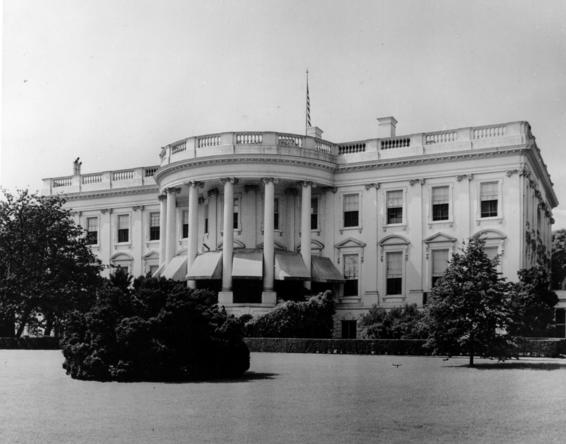
This Day in History: “Welcome Home from the crow eaters” | November 5, 2015
TRU History | November 2, 2015
THIS DAY IN HISTORY
November 2 marks the anniversary of one of the biggest upsets in presidential election history.
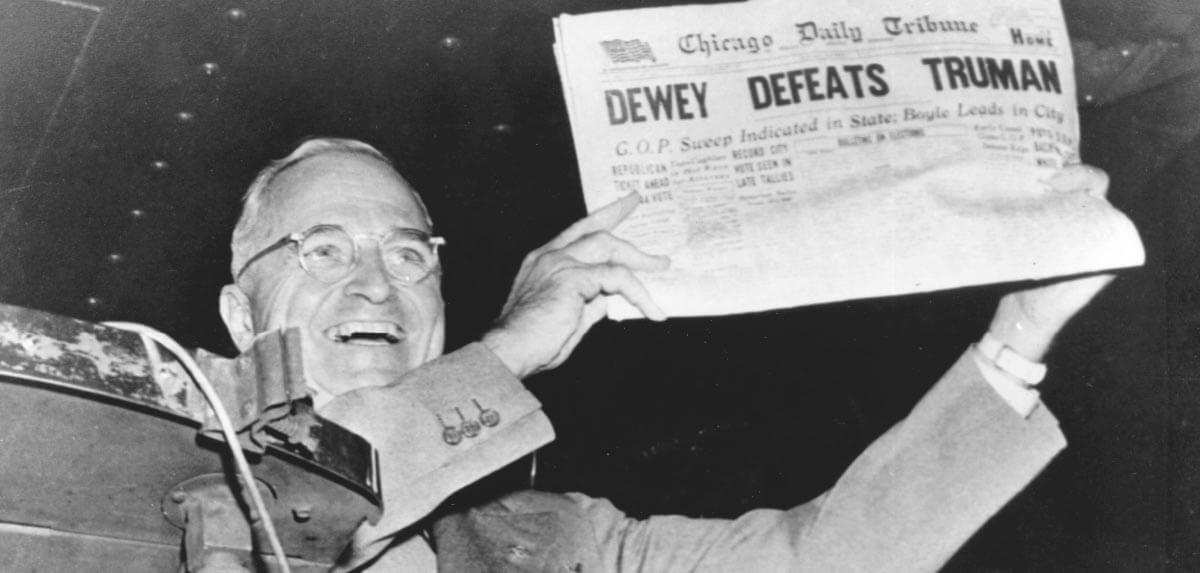
Presidential Quotes on Winning | November 2, 2015
Picturing History – Japan Surrenders | August 14, 2015
VICTORY!
“I have received this afternoon a message from the Japanese Government…”
At 7 pm on August 14, 1945, President Harry Truman stood before reporters gathered at the White House and announced the unconditional surrender of Japan. The Pacific War was over. Although the formal signing of the terms of surrender ending World War II would not occur until September 2nd, the announcement of Victory over Japan Day, or V-J Day, sent millions of Americans–citizens and members of the armed forces, out into the streets of cities and towns across the country and around the world.
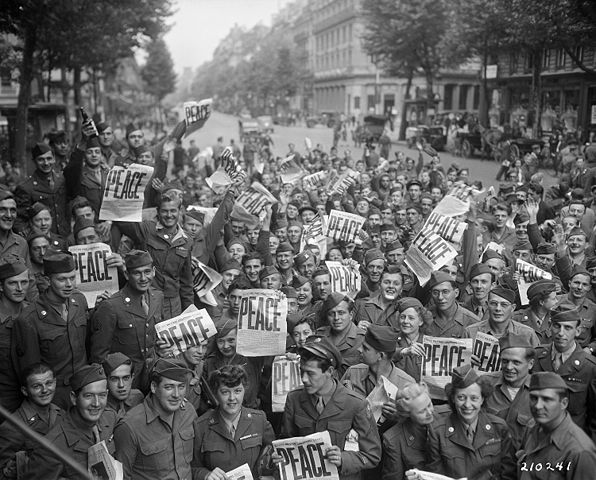
TRU View | August 5, 2015
70 Years Later
President Truman’s eldest grandson reflects on the 70th anniversary of the bombing of Hiroshima.
Contributed by Clifton Truman Daniel
Read More
